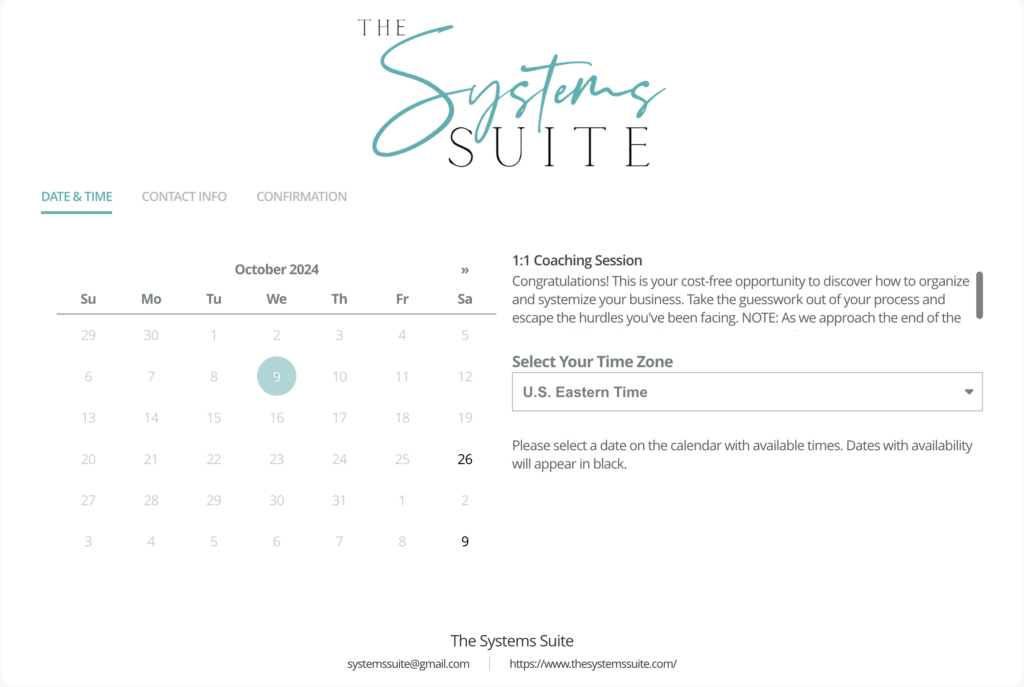A Guide for 17hats Users and Other Entrepreneurs
As a business owner, particularly one in areas prone to extreme weather like Florida, it’s crucial to have a plan in place that ensures both your safety and the continuity of your business operations. Tiffany, a native Floridian and long-time advocate of business management software, recently shared some insightful tips on how to navigate your business activities amidst inclement weather. In this post, we dive deeper into these essential strategies, focusing on how systems like 17hats can help you manage your responsibilities smoothly.
Update Your Calendar
One of the primary steps Tiffany emphasized was the importance of updating your online booking calendar. When severe weather threatens, your priorities shift to ensuring your safety and that of your loved ones. “Your calendar may have availability, but in reality, you are not available,” Tiffany notes. Remove any available slots to prevent clients from booking during periods when you need to focus on preparations or recovery.
A cluttered calendar can lead to increased stress, especially if you’re attempting to juggle consultations in the midst of a crisis. Giving yourself more time than you think you need—both before and after a storm—will allow you to manage unexpected disruptions more effectively.

Audit Your Workflows
Checking and updating your workflows is another critical step. If you’re using systems like 17hats, make sure to approve or pause any pending activities. As Tiffany explains, “see what workflows you currently have as active and see what’s next. If it’s a step that can proceed without you, let it, or if you need to pause it, go ahead.”
By doing so, you can ensure that no important tasks fall through the cracks while you are distracted by immediate concerns. Workflow automation tools can handle minor tasks, keeping your business operational even when you are not directly managing it.
Communicate with Leads and Clients
Clear communication with prospective clients is key to maintaining professional relationships despite weather disruptions. Tiffany suggests informing any new leads who have filled out forms on your website about the inclement weather you are experiencing. A simple auto-reply message stating that you will be out of the office due to extreme weather can help manage their expectations.
Setting up automatic away messages in your email will also communicate your current status to your clients. Note the expected return time, understanding that it may change due to unforeseen circumstances such as power outages.
Update Your Contracts
One commonly overlooked aspect is the necessity to include weather-related disclaimers in your contracts. “You want to make sure that it’s clear for you and your client,” Tiffany advises. This update can relieve some pressure on both parties if deadlines have to be extended due to unavoidable delays caused by bad weather.
Consult with your legal advisor to ensure the language used in your contracts is appropriate and provides clear guidelines on what clients can expect in scenarios involving inclement weather.
Enable Automatic Systems
Automation is a lifeline during times of crisis. Systems like 17hats can handle essential business functions, such as managing leads and updating clients, while you focus on more urgent needs. “Your systems give you the opportunity to just live outside of your business,” says Tiffany.
Automated workflows and lead management ensure that your business remains operational even when you cannot actively manage it. This is not only beneficial during inclement weather but also in other unforeseen situations like health issues or family emergencies.
Final Thoughts
In conclusion, preparing your business for inclement weather involves more than just taking care of physical assets; it requires a robust system that keeps your operations running smoothly. Use the tips shared by Tiffany to update your calendar, audit your workflows, communicate effectively with clients, update your contracts, and implement automated systems.
By following these steps, you can ensure that your business remains resilient and your clients well-informed, even when you are preoccupied with more pressing matters. As Tiffany puts it, “Your systems give you the opportunity to just live outside of your business because your business should be operating without you.”
Ensuring these protocols are part of your standard operating procedures means that you—and your clients—can weather any storm that comes your way.





